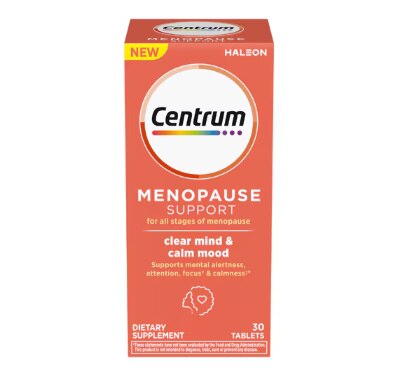Hot flashes are usually the first symptom women associate with menopause. Then, as they enter perimenopause, the period leading up to menopause, they might realize that sleep disturbances, vaginal dryness, weight gain and other pesky symptoms are part of the package as well.
However, some women don’t realize that snapping at their spouse, losing their temper with their kids or co-workers, or feeling happy one minute and down the next may also be associated with menopause. Or maybe they do but don’t realize that they can do something about their mood swings.
One study found that 40% of perimenopausal women experienced depression compared to premenopausal women. Another report found that 25% of women in the study experienced anxiety during menopause, and that severe menopause-related symptoms were associated with more severe anxiety.
Menopause Mood Swings: How Does Menopause Affect Your Mood?
There are multiple reasons why a middle-aged woman may experience mood issues. Hormonal changes during menopause, for one, can impact mood in the same way hormonal changes at other times in life, such as puberty, pregnancy and postpartum, can.
During perimenopause, hormone levels surge and fall and then decline during menopause. These hormones, estrogen and progesterone, can also influence levels of serotonin, known as the “feel-good” hormone, as it promotes positive feelings.
Less serotonin means you’re more at risk of mood swings, irritability, anxiety and depression. If you’ve experienced a major depressive episode in the past, you’re more likely to experience one during menopause.
These hormonal changes are also the culprit behind other bothersome menopause symptoms such as hot flashes, night sweats and sleep disturbances, which can also affect mood. Not getting enough sleep due to waking up drenched in sweat most nights can, not surprisingly, lead to being irritable and anxious the next day.
And, lastly, unrelated to menopause itself, women in their 40s and 50s may be facing a host of life challenges, such as sending kids off to college, taking care of aging parents and gaining more responsibilities at work, that can contribute to mood issues. Menopause symptoms and hormonal fluctuations may leave women less able to cope with these changes, leading to feelings of stress and anxiety.
How to Manage Menopause-Related Mood Issues
When younger, some women may quickly connect a bad mood to getting their period. Later in life, it may take a while for women to connect general or acute irritability or anxiety to menopause because it’s not connected to a monthly cycle.
Women need to know that they don’t have to endure upsetting or disruptive mood swings. There are various treatment options and lifestyle tips that can help you feel like yourself again.
If you’re feeling depressed, on edge, irritable or anxious, you should talk to a menopause specialist or therapist. They can recommend treatment options that can help. Here are some of the most common treatment options:
Lifestyle modifications
Whether your anxiety and mood swings are the result of hormones or life circumstances, making lifestyle modifications that promote a healthy body and mind can only help. These strategies include:
- Exercising regularly
- Eating a healthy diet low in sugar
- Practice meditation, yoga and mindfulness to relieve stress
- Limit alcohol and caffeine
Additionally, practicing good sleep hygiene is vital for ensuring a good night’s sleep, which in turn supports mood, focus and overall health.
Hormone therapy
Hormone therapy is the most effective treatment for hot flashes. Bonus: It can also help balance or replace hormone levels that may be affecting your mood. Additionally, by minimizing hot flashes and improving sleep quality, you may find yourself in a better mood.
However, hormone therapy is not the best choice for those with clinical depression or who have a history of certain cancers. It’s important to discuss the pros and cons of hormone therapy with your doctor.
Cognitive Behavioral Therapy
Cognitive behavioral therapy, commonly referred to as CBT, is a form of psychological treatment that employs strategies to modify thinking patterns. It’s proven to help women manage menopause related mood issues, as well as hot flashes, sleep problems and fatigue.
Antidepressants
Some women can’t take hormone therapy or prefer not to. Antidepressants may be a good option for those women because certain antidepressants are used off-label to treat hot flashes as well as anxiety and depression.
While hormone therapy has the added benefits of not only treating hot flashes, night sweats and mood issues, it can also alleviate vaginal dryness and sleep issues. But for women who can’t take them, antidepressants can help you feel like yourself again – and minimize hot flashes.
It’s important for women to realize that they don’t have to suffer through minor or major mood symptoms during menopause. They can work with a OB/GYN menopause specialist or a mental health professional to determine the best treatment options to help them feel good and improve their quality of life.




